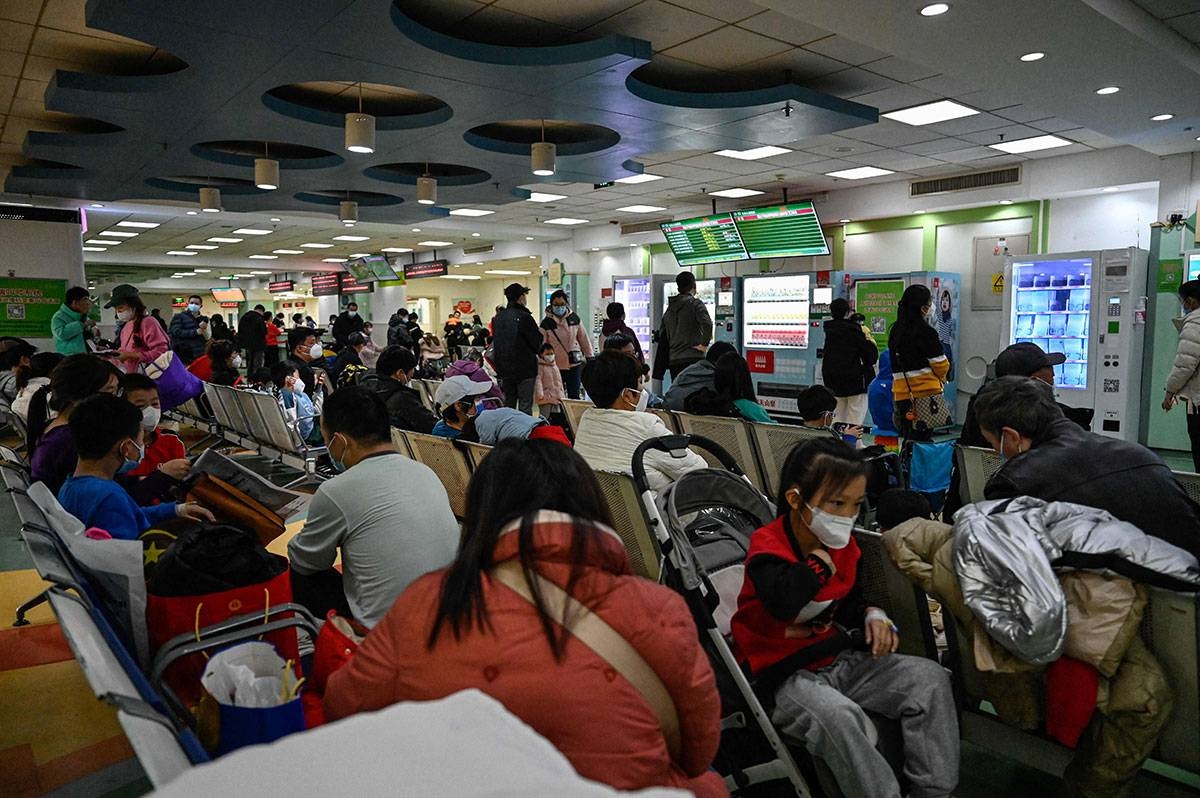BEIJING: The World Health Organization has asked China for more data on respiratory illnesses spreading in the north of the country, urging people to take steps to reduce the risk of infection.
Northern China has reported an increase in “influenza-like illness” since mid-October when compared to the same period in the previous three years, the WHO said

“WHO has made an official request to China for detailed information on an increase in respiratory illnesses and reported clusters of pneumonia in children,” the UN health body said in a statement on Wednesday.
China’s National Health Commission told reporters last week that the respiratory illness spike was due to the lifting of Covid-19 restrictions and the circulation of known pathogens, namely influenza and common bacterial infections that affect children, including mycoplasma pneumonia.
The Chinese capital of Beijing, located in the north of the country, is currently experiencing a cold snap, with temperatures expected to plummet to well below zero by Friday, state media said.
The city has “entered a high incidence season of respiratory infectious diseases,” Wang Quanyi, deputy director and chief epidemiological expert at the Beijing Center for Disease Control and Prevention, told state media.
Beijing “is currently showing a trend of multiple pathogens coexisting,” he added.
‘Due to the season’
At Beijing’s Capital Institute of Pediatrics’ Children’s Hospital on Thursday, Agence France-Presse journalists saw crowds of parents and children dressed in winter clothes.
A parent surnamed Zhang accompanied her coughing nine-year-old son and said he had fallen ill with mycoplasma pneumonia — a pathogen that can cause sore throats, fatigue and fever.
“There are really a lot of children who have caught it recently,” she said. “Of course that worries me!”
Li Meiling, 42, had brought her eight-year-old daughter, who she said was suffering from the same type of pneumonia.
“It’s true that a lot of children her age are ill with this at the moment,” she told AFP.
But she said she was “not particularly worried” about the WHO announcement.
“It’s winter, so it’s normal that there are more cases of respiratory illnesses. It’s due to the season.”
